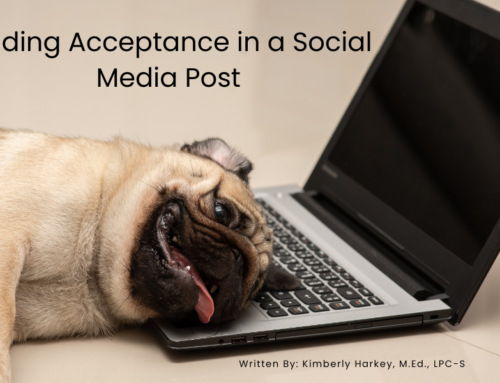How the Commercialization of Mental Health Impacts Independent Private Practices
Mental health needs have drastically impacted the mental health system. According to NAMI, it is estimated that “20.6% of U.S. adults experienced mental illness in 2019 (51.5 million people).” That is 1 out of 5 U.S. adults. Since the pandemic began the National Institute of Mental Health (NIMH) reported that the numbers they are seeing with a CDC report from June of 2020 on self-reporting behavioral health issues, “are nearly double the rates we would have expected before the pandemic.” Due to this increased need, not only are therapists busier than ever, bigger companies are forming and seeing another avenue of profit. This commercialized involvement is not looking good for the long-term sustainability of independent mental health private practices.
It first started out with bigger companies such as TalkSpace launching in 2012 and BetterHelp shortly after in 2013. These commercialized companies luring therapists to work for them by promises of bigger paychecks, less administrative work, and flexible schedules. But the benefits masked underlying concerns about client confidentiality and wellbeing that impact the therapist’s ability to ethically do their jobs. The New York Times wrote an article in 2020 titled, “At Talkspace, Start-Up Culture Collides With Mental Health.” This article exposed the darker side of the Talkspace culture, reminding us that what clients text in this text-based therapy is not confidential as transcripts of sessions are saved and accessible. The article goes on to report from former employees that, “Their accounts suggest that the needs of a venture capital-backed start-up to grow quickly can sometimes be in conflict with the core values of professional therapy, including strict confidentiality and patient welfare.” A Wired article, shows how these larger companies are more likely to be hacked and HIPAA information leaked. “After each session, Jere’s therapist typed out his notes and uploaded them to Vastaamo’s servers. ‘I was just being honest,’ Jere says. He had “no idea” that they were backing the information up digitally.”
Software Companies Get Into Mental Health
Now companies such as Headway, Alma, and SonderMind are software companies disguised as mental health services. These software companies are recruiting therapists by selling that the company will do all of the billing work for them. Therefore promising that the therapist would not have to deal with insurance companies, offer them a faster credentialing process, and that the company is helping them build their practice. What they aren’t telling you is that they have negotiated higher rates of return from these insurance companies so they can pay the therapist decently AND both these software/mental health companies and the insurance companies increase their bottom line. Headway does in fact have an NPI number and is operating as a group practice, which is traditionally given to either group practices as a whole or individual therapists in order to be paneled with insurance companies. Alma has a slightly different approach where the therapist pays for a monthly/annual subscription ($125/month or $1140/year), in exchange for a bit higher reimbursement rate.
Therapists in individual private practices that accept insurance have difficulty negotiating higher pay rates, are often asked to provide significant documentation for reimbursement, or are straight up denied appropriate and needed services. Why can’t insurance companies make systems easier and pay providers at a higher rate instead of using a third party? Many mental health providers have become private pay (not accepting insurance or being out of network) due to the hassle and headache of having to deal with insurance companies. Along with being forced to give a diagnosis and dictating a client’s course and time limits of treatment. These corporate companies are also being backed by big time investors, how can small mental health businesses compete?
Drugstores Now Offer Mental Health Services
Most recent has been the launch and expansion of the drugstore chain, CVS, who in 2019 bought and now own the insurance company, Aetna. CVS has started providing mental health care services in their onsite clinics and through telehealth. These chains tout to provide additional support to the ever-growing mental health care system and offer a more convenient, potentially less stigmatizing environment especially to individuals who may have never received care. These are definitely positive aspects of integrating mental health in more varied ways AND potentially problematic.
Not to say that the therapists working in these settings are not good. There are a lot of highly skilled, competent therapists that have worked or are working within these systems. It is just difficult to provide successful therapy in 30 minute sessions once a month, or through text, or in a one time meeting. Especially depending on how many individual clients are on your schedule in one eight-hour day. I have worked in organizations where I was expected to see 13 people for individual therapy in an eight-hour shift. Oftentimes using a language interpreter, as we would see people who spoke many different languages. That is a lot to accomplish in 30 minutes. Candace Fanale, Ph.D. in her Within Site Newsletter recently wrote a post entitled “The problem with subscription mental health services”, poses an interesting question, “Sure, it might be better than not seeking therapy at all, but do the results result in improved long term functioning?”
What Does This All Mean?
All of these systems also have a lot of resources and significant profit to invest in paying celebrities such as Demi Lovato, or Michael Phelps or even monopolizing Prince Harry in a significant role in one of the newest start up mental health companies, as the Chief Impact Officer at BetterUp. This significant profit margin also allows these companies to run up the GoogleAd keyword prices as they are flooding the mental health market with advertisements, pushing down smaller solo and group private practices in search engines.
Additionally, these companies have been poaching private practice therapists from group practices, offering major incentives such as sign-on bonuses, and other promises and incentives that an independent private practice most likely can’t compete with. Most private practice businesses are unable to do this. AbleTo has been sending messages to therapist emails and their website claims that “AbleTo is proven to deliver results with 8 weeks of treatment or less, delivering outcomes and value for our partners.” In most mental health ethics, mental health providers are not allowed to promise any treatment outcomes, and are in fact, seen as unethical to do so.
Therapy should be affordable and convenient, but at what cost to small mental health business owners and to those individuals who are seeking out these “affordable and convenient options?” Mental health providers have removed their practices from insurance companies in order to make a sustainable living. As well as to not allow health insurance companies to dictate the client’s diagnosis and treatment. These larger companies are exploitative to mental health providers who are attempting to receive the best and most appropriate pay for their important services. It has been driven into mental health professional’s heads starting with our professors in graduate school that “no one becomes a therapist to make money” thereby these companies are preying on therapist’s money scarcity fears. Companies like Headway will have more power with insurance companies, be able to negotiate higher and higher rates, beat out any group practice, and dominate the market further. At what point does someone step in and require regulations and restrictions due to monopolization of the industry, such has been attempted with companies such as Amazon, Apple, Facebook, and Google?
Gone will be the days where a hopeful new therapist will be able to dream of hanging a shingle and instead will graduate to work in a factory for mental health.




